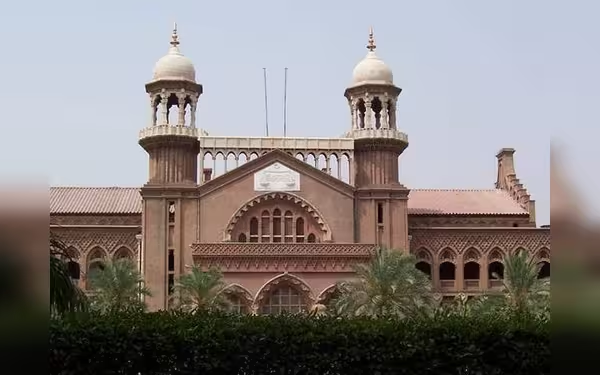Tuesday, July 2, 2024 03:58 PM
Lahore High Court Directs PMO on Judicial Independence
- LHC instructs agencies to refrain from contacting judges or staff
- Justice Shahid Karim outlines SOPs to prevent external influences
- Directive aims to safeguard judiciary's autonomy and integrity
 Image Credits: tribune.com.pk
Image Credits: tribune.com.pkThe Lahore High Court issues a directive to the PMO to ensure agencies refrain from contacting judges, aiming to safeguard judicial independence and integrity.
The Lahore High Court (LHC) has recently issued a directive to the Prime Minister’s Office (PMO) to ensure that all civil and military agencies, including the Intelligence Bureau and Inter-Services Intelligence (ISI), refrain from contacting or approaching any judge or their staff. This directive was issued by Justice Shahid Karim in response to a complaint filed by an anti-terrorism court (ATC) judge in Sargodha. The judge highlighted concerns regarding undue influence and interference in judicial matters.
Justice Shahid Karim outlined five Standard Operating Procedures (SOPs) in a written order that was made public on Saturday. These SOPs aim to uphold the independence and integrity of the judiciary by preventing external pressures or influences on judges and their staff.
The directive comes as a significant step towards safeguarding the autonomy of the judiciary and ensuring that judges can carry out their duties without any external interference. By instructing agencies to maintain a respectful distance from the judiciary, the LHC aims to uphold the principles of justice and fairness in the legal system.
The Lahore High Court’s directive to the PMO to instruct agencies to avoid contacting judges marks a crucial development in upholding the independence of the judiciary. By setting clear guidelines and SOPs, the court aims to protect the integrity of the judicial process and ensure that judges can dispense justice without any external pressures. This move reinforces the importance of maintaining a separation between the executive and judicial branches, ultimately strengthening the rule of law in the country.













